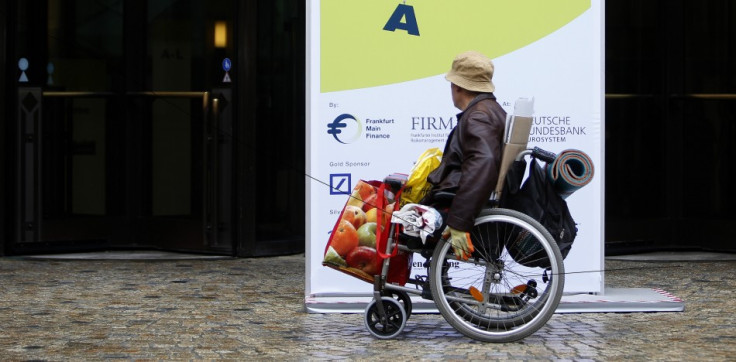Disability Hate Crimes Overlooked by 'Over-Sensitive' Police

More than 1,700 disability hate crimes were recorded by police in England and Wales in 2011-12, although the actual figure could be much higher as many victims don't come forward for fear of not being believed.
Disability hate crime is "overlooked" and "under-reported", according to a report into police, probation and the Crown Prosecution Service in England and Wales.
The Living in a Different World: Joint Review of Disability Hate Crime study also found that police are "too sensitive" about asking victims of crime if they are disabled.
The review was prompted by the case of Fiona Pilkington, who killed herself and her disabled daughter Francecca Hardwick in 2007 after repeated complaints to police about harassment by youths.
Steve Ashley, programme director to HM Inspectorate of Constabulary (HMIC), said there was also confusion over how to define disability hate crime.
"It's not as easy as identifying a religiously-motivated attack or a racially-motivated attack. Police officers don't like to say to people 'Are you disabled?',"
Disability charity Mencap told the BBC that its own research suggested that nine out of 10 people with a learning disability had been a victim of a hate crime.
Emma Harrison, assistant director at the charity, said the review revealed that "victims of disability hate crime continue to be let down at every stage of the criminal justice system".
She said Mencap welcomed the review's recommendation that the police, probation and CPS must work together to "address these serious and continued failings".
Among its recommendations, the review said a "single, clear and uncomplicated" definition of disability hate crime was required to reduce confusion.
The charity also called for police to encourage victims of the crime to come forward as under-reporting is a "significant concern".
The Home Office insists it has improved the way police forces collect and record data on hate crimes, including those against disabled people.
"We will keep working with disability groups to ensure victims have the confidence to come forward," it said in a statement.
"The Government's hate crime action plan brings together work by a wide range of departments and agencies to prevent these terrible crimes happening in the first place, to increase reporting and victim support, and to improve the operational response."
Official figures show the number of "disability hate crimes" recorded by police forces in England and Wales in 2011/12 increased by almost 25 per cent on the previous year.
Campaigners suggest that many cases of disability hate crime were being treated as isolated incidents of anti-social behaviour.
Michael Bailey, who lives in Northern Ireland and suffers from a muscle-wasting disease, said he had been tormented for seven years by local youths, abuse which continued even though he contacted police more than 20 times.
"They make you feel as if you are just a thing sitting in a chair," he told Channel 4 News.
He said he was called a "freak" and "coffin dodger", had his shed set on fire, was harrassed by youths demanding money, pelted with missiles and spat at.
© Copyright IBTimes 2024. All rights reserved.






